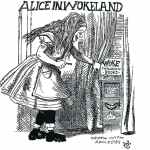The open-hearted loveliness of Hot Chip
MusicSqueeze and Hot Chip are both great British pop groups. But they never defined a scene. Their ambitions extended further than being hailed by a few hundred people in bleeding-edge clubs. Squeeze piggybacked on punk, but they were quite evidently never a punk group, even if they dressed up as one. They were of the



